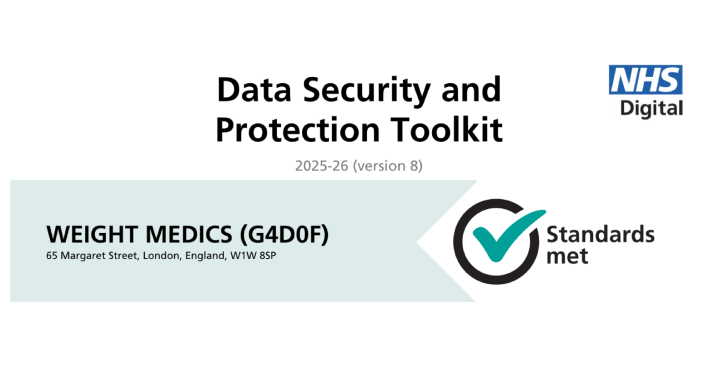
Losing weight is rarely a straight path. In the early weeks of a weight loss journey, you might notice the numbers on the scale dropping steadily. Then, suddenly, progress slows or stops completely. You could be eating the same food and exercising daily, yet nothing will change.
This frustrating phase is what many refer to as a weight loss plateau, and it’s more common than you think.
But here’s the good news: plateaus don’t mean failure or the end. With the right medical guidance, strategic adjustments, and lifestyle changes, you can get past a plateau and continue progressing towards your health goals.
What a Weight Loss Plateau Is
When your weight doesn't change despite regular dietary and activity attempts, you've reached a weight loss plateau. Your body feels as if it has reached a wall, even though you are doing everything "right."
A plateau is your body's adaptive reaction to losing weight, according to medical terminology. Your metabolism normally slows down when you lose weight. As your body works to maintain energy balance, it gets more efficient, using fewer calories for the same tasks.
What does weight loss plateauing mean, then? In essence, it stops additional fat loss when your calorie intake and expenditure are in balance.
Common Reasons You have Hit a Plateau
Understanding why you’ve reached a plateau is the first step to overcoming it. Here are some of the most common causes of a weight plateau:
1. Metabolic Adaptation
As you lose weight, your metabolism adjusts to a lower calorie requirement. The smaller your body mass, the fewer calories you burn, even at rest. This means what once worked for weight loss may now only maintain your current weight.
2. Underestimating Calorie Intake
Over time, portion sizes can creep up, or hidden calories (like sauces, oils, and snacks) go unnoticed. Even small increases can offset a calorie deficit, making it appear as though your progress has stalled.
3. Loss of Lean Muscle Mass
Muscle burns more calories than fat. If your weight loss plan lacks adequate protein or resistance training, you may lose muscle mass, reducing your metabolic rate and slowing fat loss.
4. Hormonal Fluctuations
Hormones like insulin, cortisol, thyroid, and leptin play crucial roles in metabolism and fat regulation. Imbalances can make it harder to continue losing weight.
5. Stress and Sleep
Chronic stress and poor sleep increase cortisol levels, encouraging fat storage and reducing energy expenditure. This can contribute to plateauing even if your diet and exercise remain consistent.
6. Overtraining or Insufficient Recovery
Pushing too hard without proper rest can increase inflammation and fatigue, reducing workout effectiveness and hindering recovery.
Signs You are Experiencing a True Plateau
Not every pause in weight loss is a plateau. Weight fluctuations due to water retention, hormonal cycles, or digestive changes are common.
You’re likely experiencing a true weight loss plateau if:
- Your weight has remained unchanged for 3-4 weeks or longer.
- You’re maintaining consistent nutrition and activity levels.
- Body measurements and clothes fit the same.
- You’re not seeing changes in energy or performance despite effort.
If these signs sound familiar, it’s time to reassess your plan and introduce targeted strategies to get your metabolism moving again.
Medical Strategies to Overcome a Weight Loss Stall
When lifestyle changes alone aren’t enough, medical weight loss support can make all the difference. At Weight Medics, doctor-led packages help identify and address underlying medical, hormonal, and metabolic factors that may be causing your plateau.
1) Doctor-Led Weight Loss packages
A medically supervised weight loss plan ensures you’re following a safe, evidence-based approach tailored to your unique needs.
Our doctor-led weight loss packages combine:
- Personalised calorie and nutrition plans
- Prescribed treatments where appropriate
- Medical assessments
- Continuous professional support
2) Reviewing Your Medication or Hormone Levels
Certain medications might make losing weight more challenging. In a similar vein, insulin or thyroid abnormalities can induce fluid retention and impede your metabolism.
A medical evaluation can determine if your plateau is caused by prescription drugs or your hormone levels. Under the guidance of a physician, modifications can frequently reestablish metabolic equilibrium and accelerate advancement.
3) Prescription Weight Loss Treatments and Injections
In some cases, adding a prescription weight loss treatment can help overcome a metabolic slowdown.
Medications such as GLP-1 receptor agonists work by:
- Regulating appetite and reducing hunger
- Improving blood sugar control
- Slowing digestion for longer satiety
These treatments, when prescribed as part of a medical programme, can help you get past a stubborn weight plateau by addressing biological resistance to fat loss.
4) Medical Review and Treatment Adjustments
Your body's response to weight loss is unique, and understanding it is key to long-term success.
A comprehensive medical review helps determine how your body is responding to treatment. With clinical assessment, doctors can fine-tune your treatment plan and nutritional targets, ensuring you're supporting healthy fat loss without compromising your health.
Adjustments might include:
- Incorporating strength-based workouts to boost muscle retention
- Reviewing and modifying your nutritional plan
- Introducing higher-protein strategies or meal timing changes
- Adjusting medication dosage under medical supervision
Lifestyle Changes That Make a Difference
Medical strategies work best when paired with practical lifestyle changes. Here’s how to break a weight loss plateau naturally through habit and routine adjustments.
1. Reassess Your Calorie Needs
As your body changes, so do your nutritional requirements. Work with your doctor to review and adjust your meal plan to ensure it supports continued fat loss whilst maintaining your health.
2. Prioritise Strength Training
Building or maintaining muscle mass is one of the most effective ways to counter a slowed metabolism. Aim for at least 2–3 resistance training sessions per week.
3. Increase Non-Exercise Activity
Small daily movements such as walking, taking stairs, or standing more can significantly boost calorie burn without formal exercise.
4. Manage Stress and Sleep
Prioritise 7–9 hours of quality sleep each night and practice stress-reducing activities like meditation, yoga, or gentle stretching.
5. Stay Hydrated
Even mild dehydration can slow metabolism and reduce exercise performance. Aim for consistent hydration throughout the day.
Tracking Progress Beyond the Scale
Weight isn’t the only indicator of success. During a plateau, your body may still be changing, even if the scale doesn’t show it.
- Body composition: Measure body fat and muscle ratios.
- Inches lost: Waist, hips, and thigh measurements often show progress before the scale does.
- Energy levels and performance: Feeling stronger or more energetic is a positive sign of metabolic improvement.
- Clothing: Sometimes your shape changes even if your weight doesn’t.
By broadening your view of progress, you’ll stay motivated and focused on overall health, not just numbers.
When to Seek Professional Help
If you’ve been plateauing for over a month despite consistent effort, it may be time to seek professional guidance.
Medical experts can:
- Tailor a treatment plan to your physiology
- Recommend safe and effective prescription options
- Offer behavioural and nutritional support
At Weight Medics,our clinicians help patients who have reached plateau weight loss to safely restart progress by combining medical expertise with holistic, personalised care.
A weight loss plateau doesn’t mean you’ve failed; it simply means your body has adapted. By combining medical insight with lifestyle adjustments, you can overcome a stall and continue progressing toward your goals.
Whether it's comprehensive medical assessment, prescription treatments, or tailored nutritional guidance, our experts are here to support your long-term weight loss success.
*This article is for educational purposes only. Individual results may vary. Prescription medications are only available following consultation with a GMC-registered doctor. Weight Medics is CQC registered and GPhC compliant.
How to overcome the plateau phase in weight loss?
To overcome a plateau, reassess calorie intake, increase activity, prioritise protein, and consider a doctor-led review of your health and hormone levels.
What is the 3-3-3 rule for weight loss?
The 3-3-3 rule encourages three balanced meals, three healthy snacks, and three litres of water daily to support steady metabolism and prevent overeating.
What is the most successful weight loss strategy?
The most successful strategy combines consistent nutrition, regular exercise, and medical guidance. Tailored, doctor-led weight loss packages help ensure safety and sustainability.








